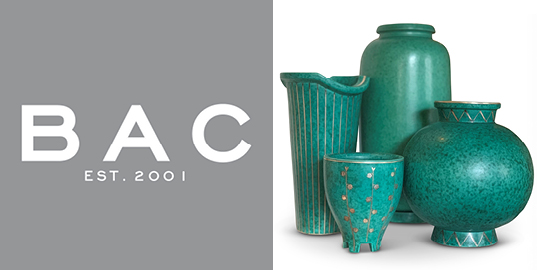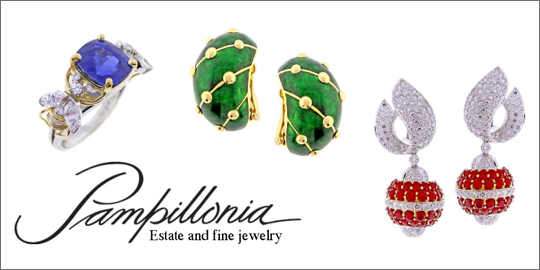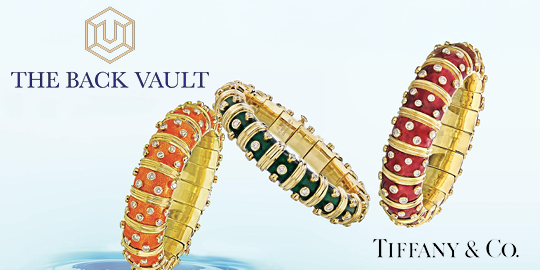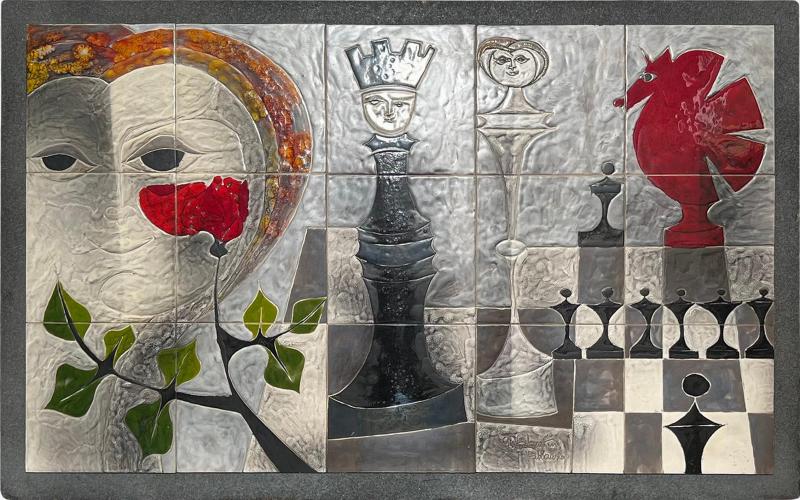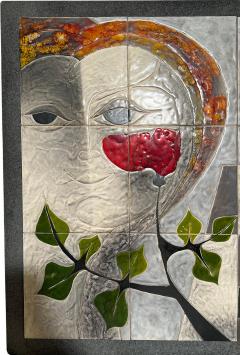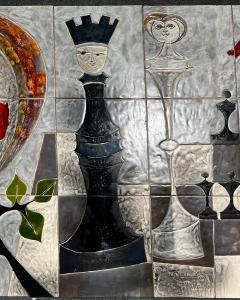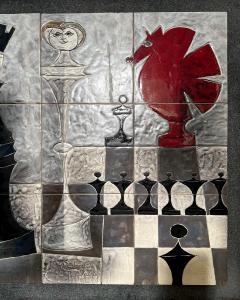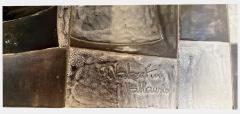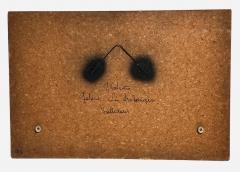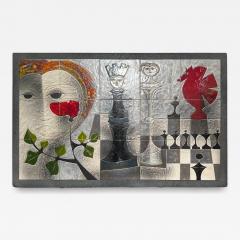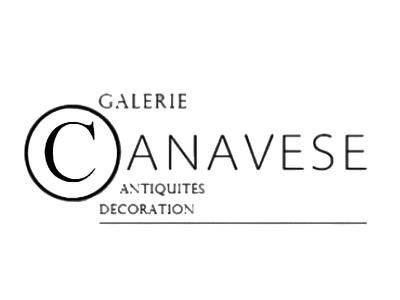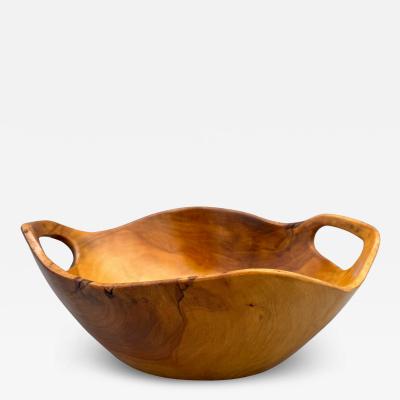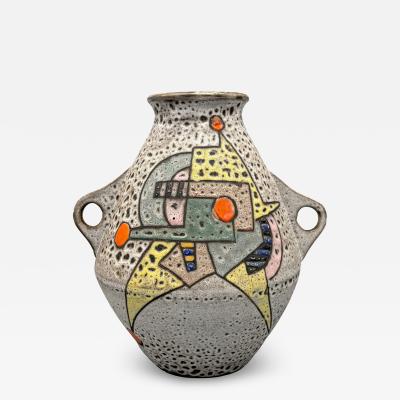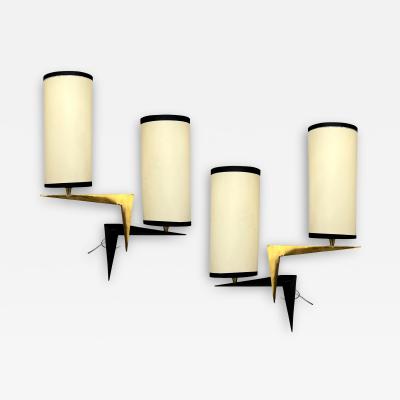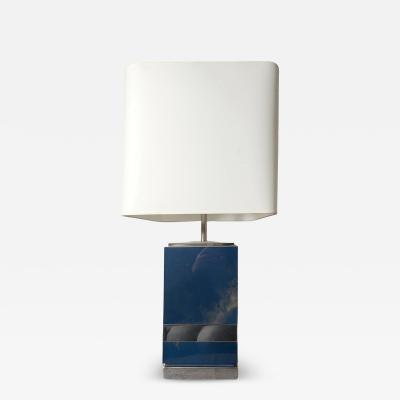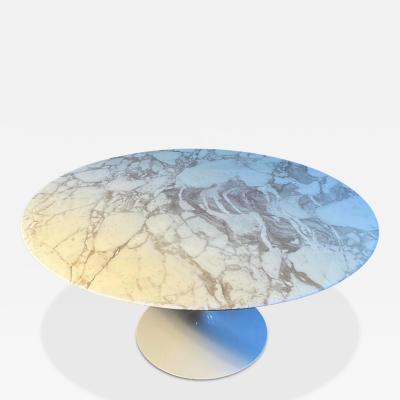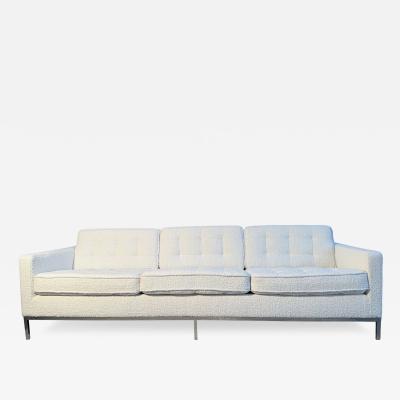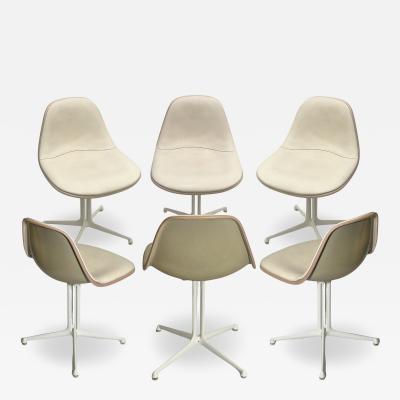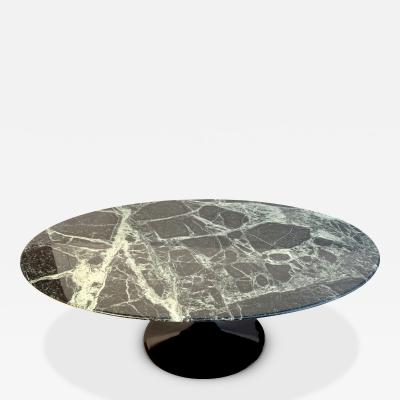Listings / Decorative Arts / Wall Art / Other
Large decorative panel, Gilbert Valentin, Vallauris, France, circa 1960
-
Description
Large decorative panel made of glazed ceramic tiles: a dreamlike design in muted gray tones illuminated by red, yellow, and orange, combining chess pieces, delicate heart-shaped faces, and a long scarlet rose.
The tiles are glued to a wooden support.
The work is by Gilbert Valentin, Galerie des Archanges, Vallauris
Biography
Gilbert Valentin (September 16, 1928 – December 31, 2000)
Painter, Sculptor, Ceramicist
Gilbert Valentin was born on September 16, 1928, in Nancy. His father, André Valentin, an ironworker, was responsible for maintaining the Jean Lamour gates on Place Stanislas and was a member of the Nancy School. From a very young age, Gilbert Valentin became acquainted with the creators of this particularly rich artistic period: architects, painters, sculptors, glassmakers, and ceramicists. It was therefore only natural that he learned the techniques of iron and wood.
It was in 1946 in Dieulefit that Gilbert Valentin discovered ceramics and learned the most primitive techniques of this art. This first experience was followed by a professional apprenticeship at the National School of Vierzon in the ceramics section and then by work at the Lunéville-Saint-Clément earthenware factory as a ceramic engineer.
Having mastered ceramic techniques perfectly, particularly enamels, Gilbert Valentin decided in 1950 to settle in Vallauris, a major ceramics center, for its light. With the help of his wife Lilette, with whom he had five children, he founded Les Archanges, where he received many artist friends, painters, sculptors, musicians, writers, among them Pablo Picasso, Jacques Prévert, Georges Braque and Jean Cocteau who, in 1960, appointed himself president of the Club des Archanges. Gilbert Valentin’s signature will often refer to the name of the Archanges workshop.
Gilbert Valentin quickly expanded his activities to other disciplines: ceramics, pottery, painting, sculpture, metal art, weaving, and lithography. To better understand Gilbert Valentin’s ceramic work, it is important to recall the general evolution of Vallauris ceramics. Vallauris, long essentially a center of culinary ceramics, was losing momentum and turned towards a rapidly expanding artistic production driven by many young artists such as André Baud, Suzanne Ramié, Jean Derval, Roger Capron, Picasso, etc.
Like all these ceramists, Gilbert Valentin actively participated in the renewal of forms and decorations. Using at this time a red clay, sometimes chamotte, purchased from the Union, the main earth factory in Vallauris, and enamels from the Hospied factory in Golfe Juan, the artist was interested in different techniques: turned, modeled or cast pieces to create new forms with a predilection for robust pieces (jugs without handles, zoomorphic forms for other pieces), with abstract decorations on a black or gray granite background where spots of pure colors (red, yellow, orange, turquoise blue, white) were projected. At the same time, Gilbert Valentin produced large, very sober ceramic panels and large engraved or decorated dishes which enjoyed considerable success.
In 1961, Gilbert Valentin produced a series of sundials for the village of Coaraze based on designs by Jean Cocteau and Henri Goetz. In 1962, a patent for the technique of Imprints on Clay was developed for a joint project with Jean Cocteau. His death in 1963 unfortunately put an end to the project and to a close friendship between the two artists.
From 1963 onward, and especially in the 1970s, the artist became interested in elements of the mechanical world, which he brought to life by assembling them, resulting in the series of « Mécaportraits, » « Mécasphères, » and « Mécasculptures. » Valentin also collaborated on decorative and architectural projects. The artist subsequently turned to ceramics, increasingly drawing on the work of a painter, depicting flowers, fruit, birds, and delicate faces, often imbued with symbolic concepts.
Gilbert Valentin died on December 31, 2000 in Saint Laurent du Var. -
More Information
Documentation: Signed Origin: France Period: 1950-1979 Materials: Ceramic, wood Condition: Good. Creation Date: Circa 1960 Styles / Movements: Modern, Mid Century Patterns: Florals/Botanical, Geometric Incollect Reference #: 828823 -
Dimensions
W. 43.31 in; H. 27.56 in; D. 0.59 in; W. 110 cm; H. 70 cm; D. 1.5 cm;
Message from Seller:
Catherine Canavese is an expert from the "Compagnie Nationale des Experts." She is an astute antique dealer and offers to connoisseurs, dealers and private customers a curated selection of objects, furniture, sculptures, lamps and decorative elements of the XIXth up to the XXIth century, all original and of the best quality. The gallery has been in operation since 2001.








